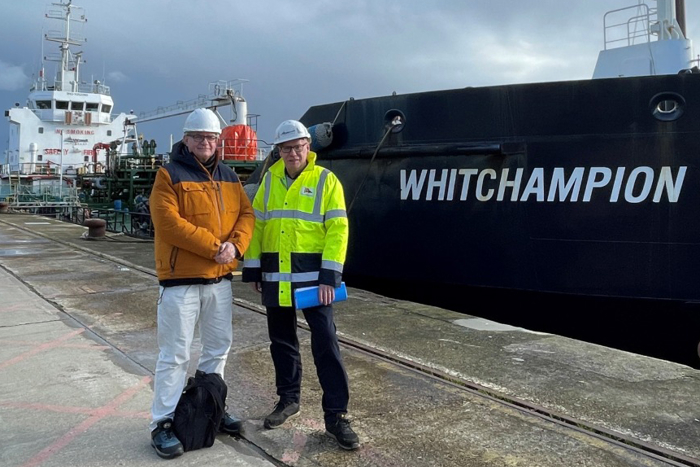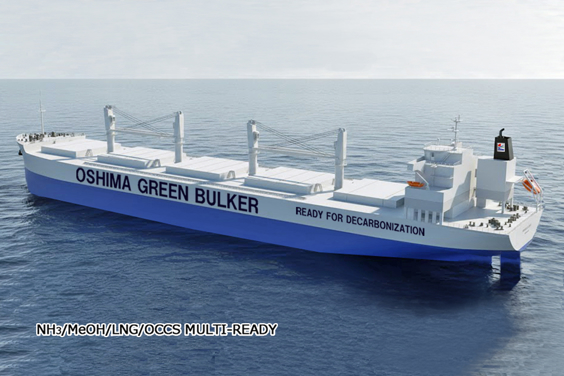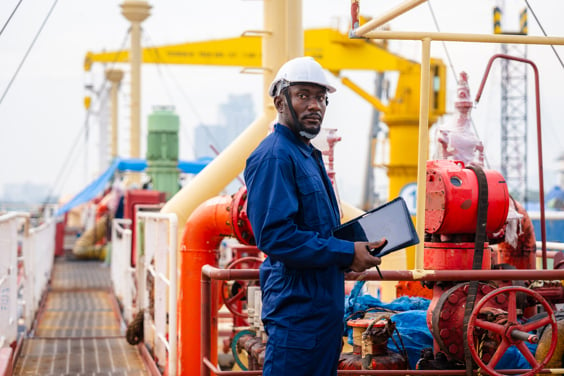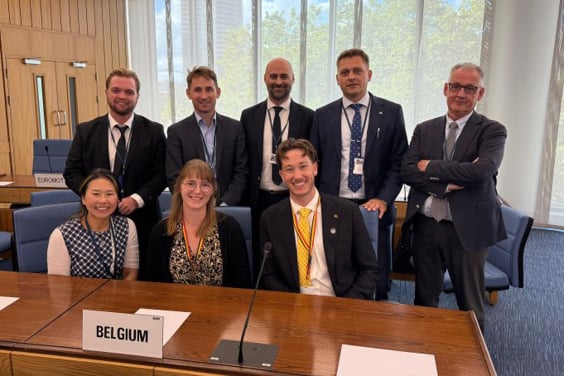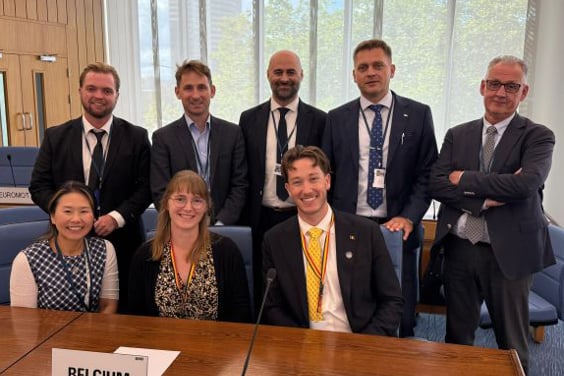In what is believed to be an industry first, UK-based bunker operator John H. Whitaker (Tankers) Limited has secured chemical certification from Lloyd’s Register (LR) on behalf of the Isle of Man Flag Administration for its tanker Whitchampion to load, carry and blend Fatty Acid Methyl Esters (FAME B100) onboard under IBC Code and MARPOL Annex II regulations.
The certification allows Whitchampion to perform onboard blending of biofuels with petroleum distillates and residual fuel oils. The operation is authorised within UK coastal waters under a Tri-Partite Agreement between the Isle of Man Flag and the UK Maritime and Coastguard Agency (UKMCA).
A second Whitaker tanker, Whitchallenger, will be undergoing a similar approval process and is expected to be certified later this year.
At present, bunker tankers certified under MARPOL Annex I are limited to carrying blends no more than 30% FAME under IMO regulations. Oil Fuels with higher bio-content fall under International Bulk Chemical Code (IBC Code) and MARPOL Annex II, typically requiring full chemical tanker status. That regulation has, in effect, frozen out a significant portion of the conventional bunker tanker fleet from supporting mid-to-high-range biofuel blending.
Whitaker’s Whitchampion is the first LR-classed vessel to bridge that gap. Through comprehensive Gap Analysis and Risk Assessment against the IBC Code and MARPOL Annex II requirements, LR developed an approach which involved mitigation of the assessed risks. This led to obtaining waivers/exemptions from the Flag Administration allowing this Annex I bunker tanker to gain chemical certification to carry FAME as cargo, without needing to convert to full chemical tanker status.
The successful delivery of dedicated onboard training on the safe handling of FAME has also led to UKMCA approval and a FAME Restricted endorsement to the existing Oil Tanker Dangerous Cargo Endorsement (DCE) for the crew.
Tim Wilson, Principal Specialist Fuels and Emissions, LR, said: “This certification demonstrates a credible and commercially viable route for existing bunker tankers to participate in the energy transition. It sets a clear blueprint for others to follow, enabling owners to consider the possibility of adapting existing bunker tankers for sustainable fuel delivery without resorting to prohibitively expensive conversions or replacement with a chemical tanker.”
Jawwad Minhas, Lead Specialist, Chemical Certification, Environmental Team, LR, said: “Our method of conducting Gap Analysis and Risk Assessment, followed by implementing mitigation strategies including the use of waivers and exemptions while ensuring safety and environmental compliance, is an effective and practical approach to obtaining certification for bunker vessels. This approach provides confidence and flexibility to all parties involved as the maritime industry undergoes energy transition."
Peter Howard, Technical Director at Whitaker Tankers, added: “This certification is the result of focused determination from all involved and underlines Whitaker’s commitment to providing clients with the flexibility they need to meet their decarbonisation goals. We’re proud to lead the way in this space with Whitchampion and look forward to progressing a similar certification with LR for her sister ship Whitchallenger later this year.”
Fuel for Thought: Biofuel gathers into one place the most relevant information on the use of biofuels in shipping, serving as a convenient reference for shipowners considering alternative fuel options for their fleets, and for maritime professionals seeking a deeper understanding of the zero-carbon transition. The report combines expertise from LR and other shipping knowledge leaders on topics including the characteristics and operational considerations for biofuels, regulatory drivers for biofuel adoption, techno-economic considerations, fuel quality and availability, and biofuel trials in shipping.
Fuel for Thought is LR’s industry-leading series of reports and webinars on alternative fuel sources for ships. Through expert analysis and critical insights, each edition provides a comprehensive and informative overview of the latest technology advances, policy developments and emerging trends and opportunities in this rapidly evolving field.
